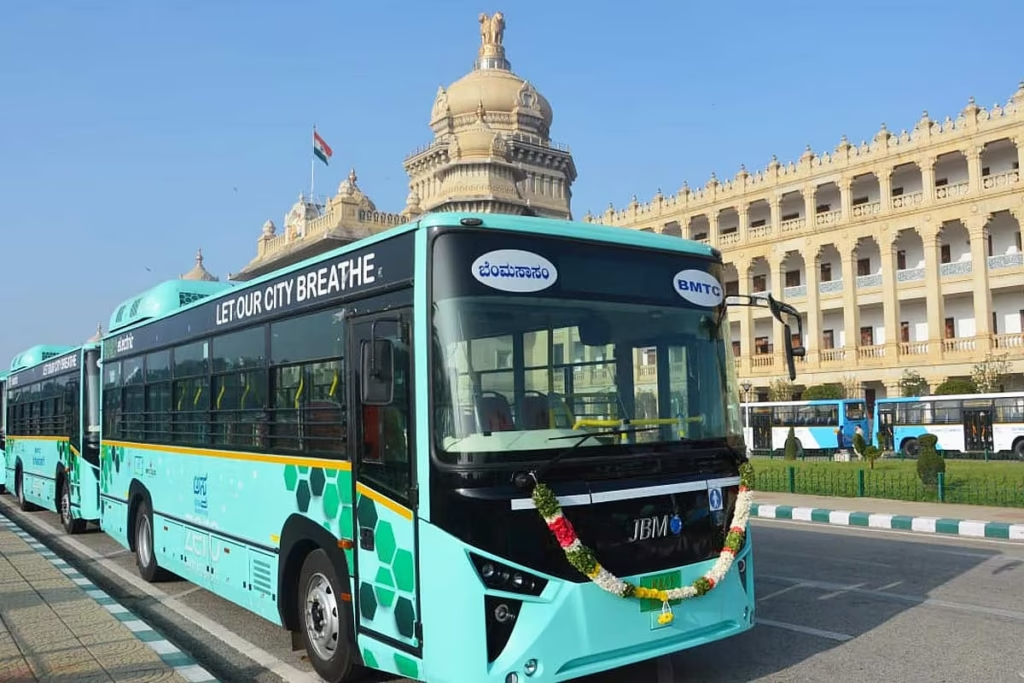Karnataka’s Health Minister, Dinesh Gundu Rao, has proposed that all new public transport vehicles in Bengaluru be electric, aiming to reduce pollution and promote sustainable urban mobility. This comes in the wake of the broader initiative by the state to develop its electric vehicle infrastructure and adoption.
State Initiatives and Investments
The Karnataka government has proactively made efforts to incorporate electric buses in the public transportation system of Bengaluru. The first fleet of electric buses was flagged off in December 2021, hence becoming one of the big steps toward eco-friendly transportation. Continuing the momentum, BMTC has signed an agreement with TML Smart City Mobility Solutions Limited, a wholly-owned subsidiary of Tata Motors, for the supply of 921 electric buses.
The Karnataka cabinet also cleared the induction of 10 double-decker electric buses, further augmenting the green transit options of the city.
Impact on Air Quality and Urban Congestion
Bengaluru is known to have the worst air pollution and traffic congestion; it has earned itself the tag of being India’s “Silicon Valley.” Switching public transport to electric vehicles can help, in no small measure, lower carbon emissions and improve air quality. With the city’s developing population, expanded vehicle density means that more individuals will use public transportation through EVs to decrease traffic blockage.
Require for Charging Framework
Setting up a wide arrange of charging foundation is essential for the consistent move to electric open transport in Bengaluru. This will involve setting up fast-charging stations at all major transit hubs and depots. The policy measures—subsidy, lower electricity tariff for EV charging, and financial incentives by way of fleet operators—will further accelerate its adoption. The strategy should be so well articulated that Bengaluru should become a model for sustainable urban mobility in India.
Key Future Plans and Associated Challenges
Looking ahead, Karnataka has requested 5,000 e-buses for Bengaluru under the central government’s PM E-DRIVE scheme, bringing home the requirement of the city, which needs around 10,000-12,000 buses to cater to its public transport needs.
These initiatives demonstrate a strong commitment to sustainable transportation, but infrastructure development, funding, and public acceptance will still be major challenges. Further collaboration between state authorities, private stakeholders, and the public will be necessary in order to make the transition of the public transport fleet to electric vehicles successful for Bengaluru.

